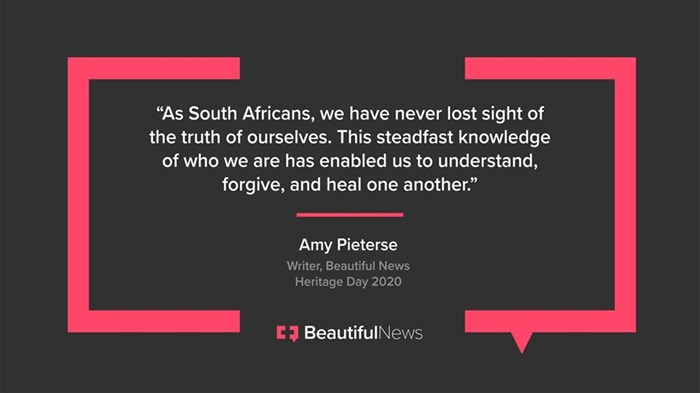
Related
Top stories





Marketing & MediaAds are coming to AI. Does that really have to be such a bad thing?
Ilayaraja Subramanian 16 hours

More news
















We don’t choose what we inherit. But we can choose what we do with the legacies passed down to us. There were points in our history where South Africa was projected to fail. Yet time and again, the calibre of this country’s people has been underestimated. We have always been a nation that has stood up and fought for what’s right. For even in the midst of fear and hardship, our resilience saw us through. Now, facing new challenges, South Africans must take it upon themselves to continue this legacy of strength.
Our fortitude is reflected in how we preserve our cultures and traditions. As South Africans, we have never lost sight of the truth of ourselves. This steadfast knowledge of who we are has enabled us to understand, forgive and heal one another. And while we face current and future obstacles, we know we can overcome them. If anything our history has taught us, it’s that we are tenacious. And there are individuals today who are bolstering this heritage of resilience for future generations.
Grace Masuku watched as younger generations became increasingly disconnected from their culture and heritage. Today in her 80s, she carries the traditions of the Bakgatla-Ba-Kgafela people. To preserve Batswana history, Masuku founded the Mphebatho Cultural Museum. Here, she preserves indigenous knowledge not only essential to her identity, but to the environment. Masuku has become a stalwart for conservation, empowering people to protect their communities through traditional and sustainable methods. “Our culture is about passing information from generation to generation,” she says. “Actually, we call it nation building.”
Gift Kgosierileng is unapologetic about expressing who he is. A self-proclaimed fashion artist, he uses design to reflect his mixed Khoisan-Tswana heritage. “It’s evident, as a country, we’ve become very westernised and kind of losing touch with our indigenous roots,” he says. With his label No Modern Slave, Kgosierileng is crafting a vision of African truth. “I think it’s important for every person to be the writer of their own narrative,” he says. Stitching contemporary clothing that bears striking elements of his heritage, Kgosierileng is redefining ways of connecting with and preserving culture.
In the town of Leliefontein in the Northern Cape, Vera Engelbrecht is reviving Nama traditions. The area was inhabited by the Nama people before the arrival of settlers. Gradually, their culture was eroded. But Engelbrecht is determined to keep her people’s stories alive. She has built Nama huts and a kookskerm, where she cooks traditional meals like afval and askoek for visitors. “The beauty of life is learning about those who live differently from you,” Engelbrecht says. “I want to share my knowledge and culture so that we as South Africans can grow closer as a nation.”
After the Soweto uprisings of 1976, musician Pops Mohamed recognised the need to preserve African culture. He turned to indigenous music, learning to play instruments such as the mouth bow. While others doubted his move away from the mainstream, Mohamed persisted. Recording the sounds of these ancient instruments and giving them a modern twist, he changed the cultural landscape by resurrecting an essential aspect of our nation’s heritage. “Stay true to yourself and believe in yourself,” Mohamed says. “Because if you don’t believe in yourself, no one else will.”
Within us all is a fighting spirit. But it’s up to us if we protect this heritage. These South Africans prove that preserving our cultures and traditions makes us stronger. It unites us in difference, building bridges of understanding and respect. When we take agency over our lives, we imbue our country with a rich and vital consciousness. Now, we have the opportunity to decide the legacy we will leave behind. We can choose what defines us, and we can choose our identity. Most of all, we can choose resilience – for we know it’s at the heart of every South African.